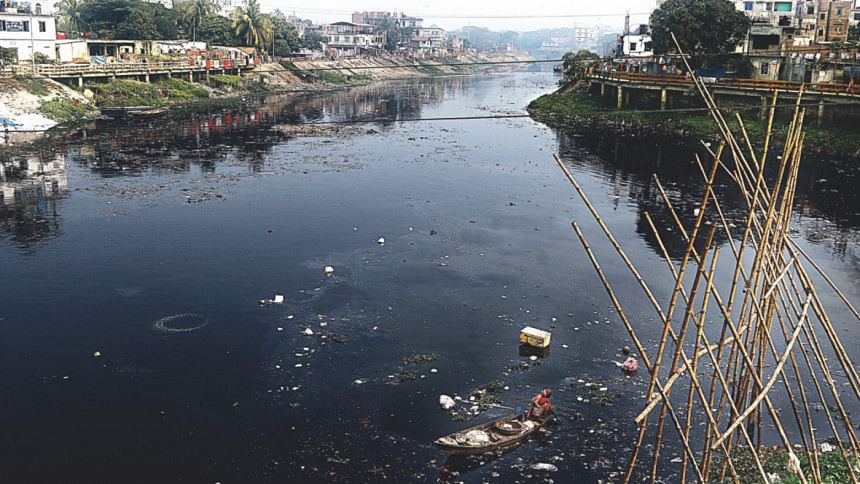The land of (dying) rivers

The once-sparkling water of the Buriganga is now a dark, smelly pit of liquid waste. Dark flows the Turag too, which is lined with factories that dump their waste, including plastic materials, polythene and dyes into its water. The waters of Dhaleshwari and Balu are so toxic that those who depend on them contract various kinds of skin and gastrointestinal diseases. The once-mighty Korotoa river is now a ghost of its former self, choking with pollution and a regulator that obstructs natural flow. No one can answer why this regulator—which has not been used even once in the past 15 years—was built, except to say that it was part of a Tk 2,665 crore project to improve the condition of the Korotoa. The Bangshi, too, is a dump, in addition to being a breading ground for mosquitoes and other insects. The list, sadly, goes on.
More than a hundred rivers have already died since independence. The list of who is responsible for the slow but sure death of our rivers is also a long one—from big corporations to government institutions, everyone seems to have claimed their share of the pie. Industries seem to think it is their right to dump their waste into our rivers; local elites, businessmen and grabbers see no problem in claiming vast areas of waterbodies for their personal and commercial use; politicians and policymakers—whose vested interests lie elsewhere than in protecting the rivers—turn a blind eye towards these irregularities, even as they make promise after promise to save them from pollution and the grabbers.
The High Court issued a 17-point directive in 2019 to save the country's rivers and water bodies, and the Prime Minister herself has, on multiple occasions, directed the ministries to take necessary measures. Yet, our rivers continue to turn into drains. We have written many an editorial with numerous prescriptions of what the government ought to do, but have seen little reflection of our concerns in subsequent government action. What we need more than anything is political goodwill and a serious commitment to revive what remains of the once mighty rivers. Today, we provide no prescription but simply reiterate the appeal we made yesterday—Save Rivers, Save Sonar Bangla.

 For all latest news, follow The Daily Star's Google News channel.
For all latest news, follow The Daily Star's Google News channel. 



Comments